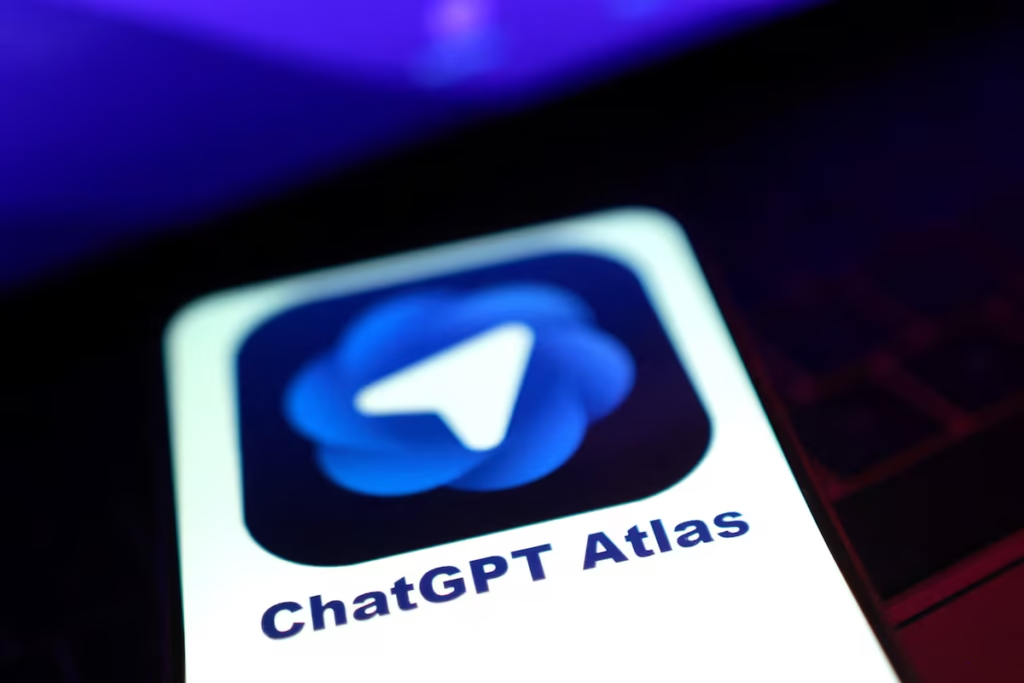OpenAI has officially entered the web browser market with the launch of ChatGPT Atlas, an AI-powered browser built around its popular chatbot, marking a direct challenge to Google Chrome’s long-standing dominance. The launch reflects OpenAI’s broader strategy to expand its presence in users’ digital lives, leveraging its massive user base and the growing popularity of AI-driven tools.
With 800 million weekly active ChatGPT users, OpenAI is well-positioned to capitalize on the shift toward AI-assisted browsing. Analysts suggest the new browser could accelerate a move away from traditional keyword-based search, with users increasingly relying on conversational AI tools to summarize content, compare products, and make informed decisions online. By analyzing browsing habits and user interactions, OpenAI could also gather valuable insights into consumer behavior, a move that has clear implications for the future of digital advertising.
One of Atlas’s key features is the ChatGPT sidebar, which can be opened alongside any website. This allows users to instantly summarize content, compare options, or analyze data without leaving the page. Paid users have access to an enhanced “agent mode,” which enables ChatGPT to perform actions on their behalf. In a recent demonstration, the AI located a recipe online and successfully added all required ingredients to an Instacart shopping cart, illustrating its potential to automate everyday tasks like research, shopping, and planning.
Since the launch of ChatGPT in late 2022, OpenAI has emerged as a major disruptor in the tech industry, led by CEO Sam Altman. However, the company faces stiff competition from established tech giants like Google and emerging AI startups such as Anthropic. Google has been quick to respond to the rise of AI chat tools, integrating its Gemini AI model into Chrome for U.S. users. This feature allows search results to appear in a more conversational format, blending traditional links with AI-generated summaries, aiming to keep users within the Google ecosystem.
Despite the competitive landscape, Google Chrome remains dominant, holding 71.9% of the global browser market share as of September 2025. Yet experts believe that the entry of OpenAI into the browser space could reshape the digital advertising landscape. “Integrating chat into a browser is a precursor for OpenAI starting to sell ads,” said Gil Luria, an analyst at D.A. Davidson. “Once that happens, it could take a significant share of search advertising from Google, which currently controls around 90% of the category.”
OpenAI has not yet monetized Atlas through advertising, but its combination of AI capabilities and seamless browsing could attract both users and advertisers over time. By offering a more interactive and personalized experience, Atlas may appeal to audiences who are looking for faster, smarter ways to navigate the web.
The launch of ChatGPT Atlas also signals a broader trend in the tech world: the convergence of AI and everyday online tasks. From summarizing articles to filling out forms, drafting emails, and shopping online, AI-powered browsers are increasingly offering functionality beyond simple search. Other competitors in this growing market include Perplexity’s Comet, Brave Browser, and Opera’s Neon, all of which are incorporating AI tools to attract users and enhance engagement.
As AI continues to reshape the digital landscape, OpenAI’s foray into the browser market represents a significant strategic expansion, moving the company beyond chat into the broader ecosystem of web interaction. Whether ChatGPT Atlas can challenge Google Chrome’s dominance remains to be seen, but it certainly represents a new era in AI-assisted browsing that could change how millions of users interact with the internet.

